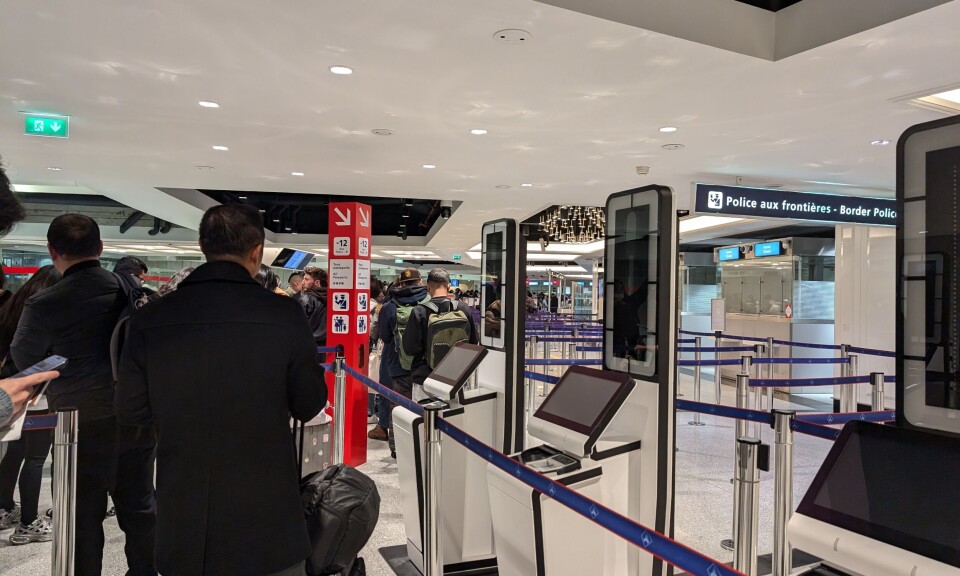-
Pension age reform in France: New poll shows support for a return to age 62
Employers' organisations and trade unions are currently meeting to discuss the subject on the orders of Prime Minister François Bayrou
-
Mystery of jewels found buried under communal wall in Dordogne
The gold rings, pearl brooches and diamond encrusted bracelets were discovered by a local association
-
Try a different way to cross UK-France the Channel - a sailing catamaran ferry
Passengers will be able to help sail the boat once out of the harbour
300,000 clear masks to be distributed in French schools
The masks have a clear-plastic window covering the mouth, so facial expressions are still visible. Designed to be “inclusive”, the masks will not be available to everyone.

Minister for education Jean-Michel Blanquer confirmed that 300,000 transparent masks would be distributed in schools in France. A clear window in the masks means that while they are being worn, facial expressions are still visible and lip reading is possible.
Speaking to news source BFMTV on September 7, Mr Blanquer said: “We are not making them widespread, but they will be at least available for students over the age of 11 with disabilities, and in the case of maternelle classes, where necessary.”
Two days earlier, minister for people with disabilities, Sophie Cluzel told news source Le Journal du Dimanche that masks would initially be given to teachers in maternelle classes (working with children aged 3-6 years old) and staff who are in contact with deaf and hard of hearing students. When more stock becomes available, masks would also be given to speech and language therapists and people who work with people who are autistic and disabled.
Ms Cluzel said: “More than 100,000 masks will be made from now until the end of September… they will be available in large numbers during autumn.”
Read more: Free masks in France: Who is eligible?
Read more: La rentrée: Rules for schools and coronavirus cases
New challenges for students with disabilities this year
This September 385,000 students with disabilities have gone back to school in France, 6% more than last year. These figures do not include students in private schools.
The return to school poses a problem for many students who have to study in conditions which are not adapted or are only partially adapted to their needs. The enforced mask-wearing rule in place in schools this year has given students with disabilities and their families another issue to contend with.
Parents facing such difficulties can call government helpline on 0805 805 110 or 0800 730 123 for those who are hard of hearing.
Since the line opened in July Ms Cluzel says it has received “about a thousand calls”, a number she claims is “less than last year”.
Three types of inclusive mask available
Three models of government-approved, inclusive mask are available: Inclusifs®, Sourire® and Beethoven®.
They are made in France, and are reusable and washable up to 25 times at 60°C.
Prices range from €9-15, with pre-order services available until September 12, and direct orders able to be placed from September 20.
Read more: French sisters design mask to allow lip-reading
Mandatory masks hit lipstick sales
Data measurement firm Nielsen has reported that French makeup sales are down 16.9% since the beginning of the year.
Purchases of cosmetic products fell by 53.4% between March and May, and the decrease has since continued with sales down 6.3% since deconfinement began.
The downward trend has hit some products more than others. Sales of face products such as foundation are currently down 10%. And, most notably, sales of lipstick, which dropped by 75% during confinement, are still down 26.4%.
This might be due the difficulty of wearing lipstick with a mandatory mask, commentators have suggested. Firstly, non-inclusive masks mean lipsticks are not visible while the mask is being worn. Secondly wearing lipstick and a mask together often results in the makeup product getting all over the inside of the mask.
Data suggests that consumers are focusing on eye makeup instead. After a significant drop in sales during confinement, sales of mascaras, eyeliners and eyeshadows are now up 0.02% on last year.
Related stories
Public place mask-wearing rule challenged in French court
Nabila Ramdani: masks have dramatically changed daily life
























